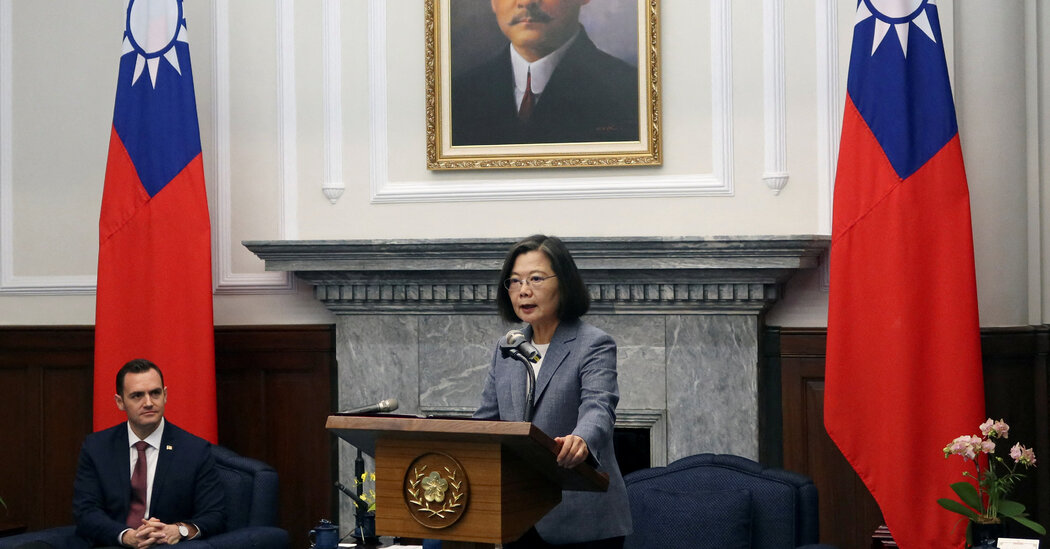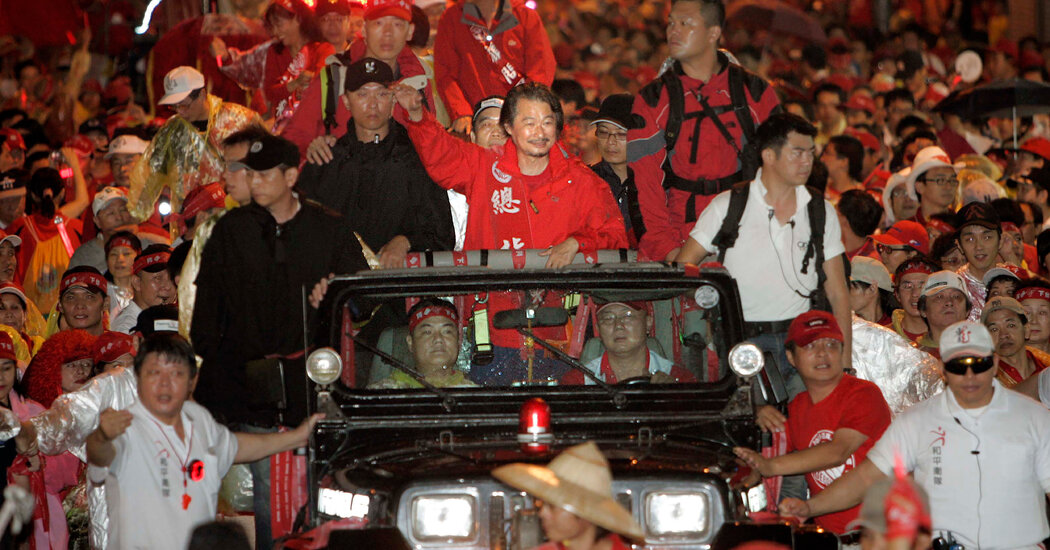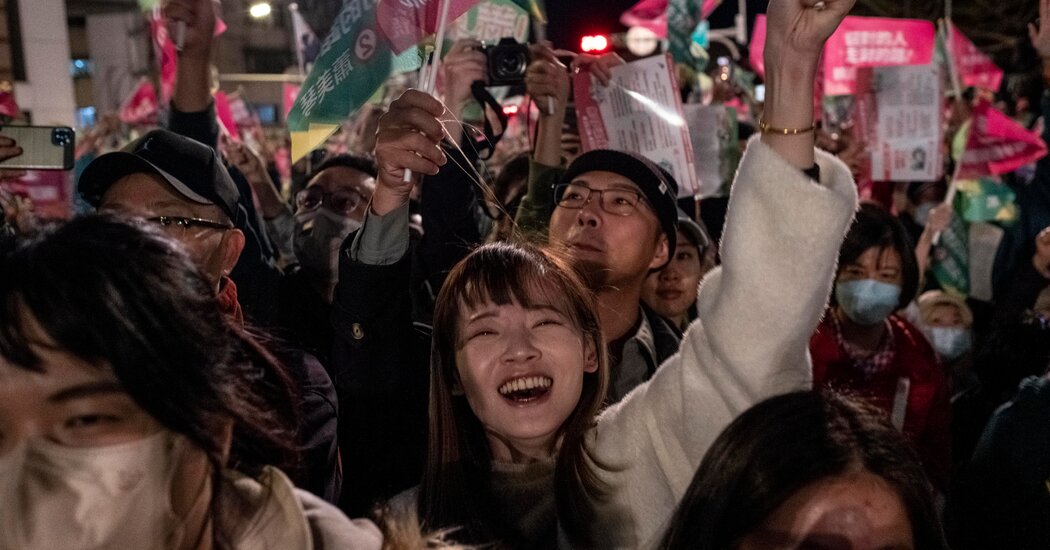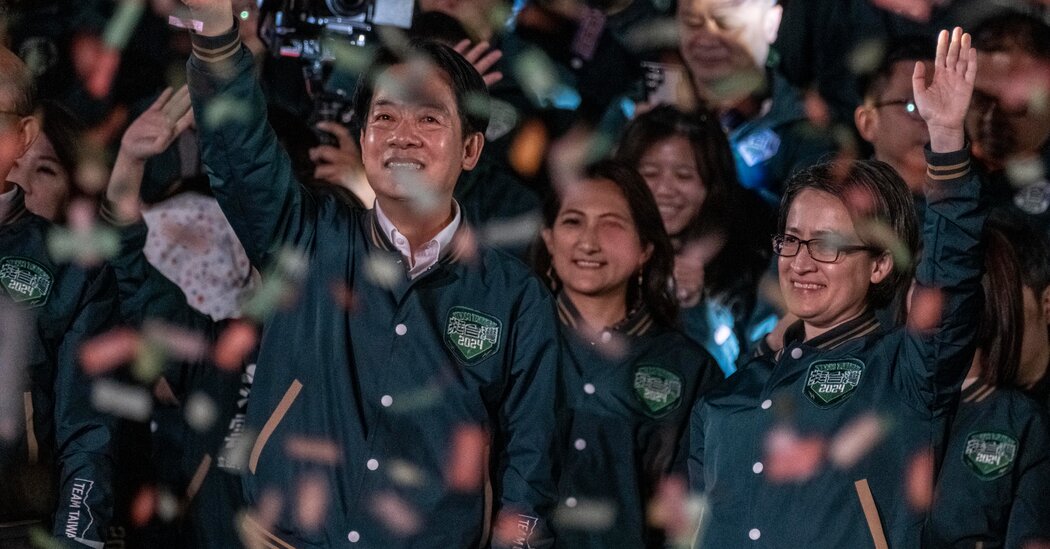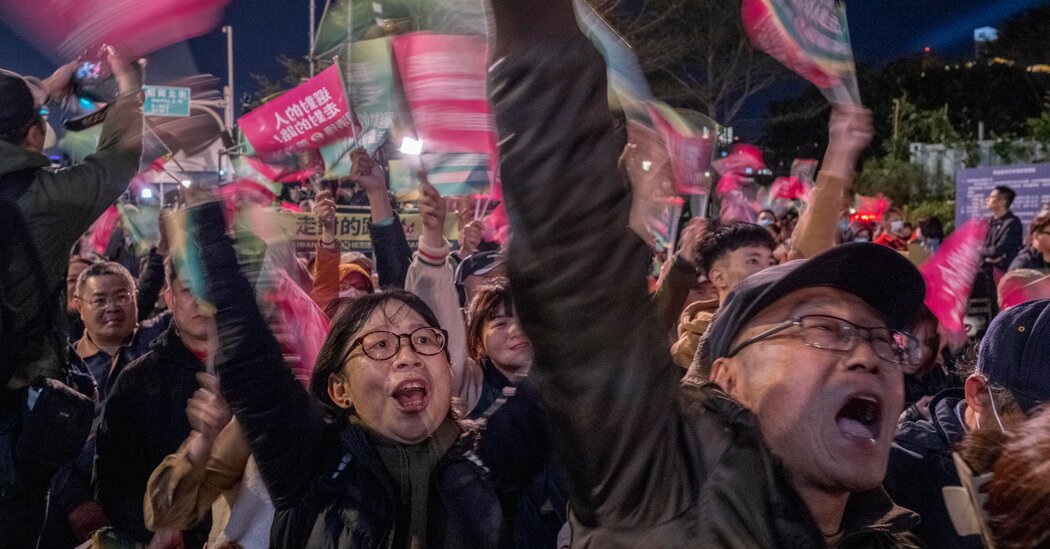A small island controlled by Taiwan a few miles off China’s coast lived for decades in constant readiness for war. At one point in 1958, troops there hunkered in bunkers as Communist forces rained hundreds of thousands of shells on them. These days, the island, Kinmen, has become a hub of Taiwan’s commerce with China and its abandoned, weatherworn fortifications are tourist sites. Eight ferries a day take Taiwanese businesspeople and visitors from Kinmen to mainland China. But the sea around Kinmen has again turned tense after two Chinese men…
Tag: Democratic Progressive Party (Taiwan)
Delegation Led by Mike Gallagher Says U.S. Support for Taiwan Is Firm
Visiting U.S. lawmakers sought to assure Taiwan on Thursday that the United States would stand by it in the face of pressure from China, though a bill that includes support for the island has stalled in Congress, and divisions over aid for Ukraine have fanned wider questions about Washington’s commitment to its partners. “Today we’ve come as Democrats and Republicans to show bipartisan support for this partnership,” Representative Mike Gallagher, the Wisconsin Republican who is leading the congressional delegation to Taiwan, told President Tsai Ing-wen in Taipei, the capital. Journalists…
Shih Ming-teh, Defiant Activist for a Democratic Taiwan, Dies at 83
Shih Ming-teh, a lifelong campaigner for democracy in Taiwan who spent over two decades in prison for his cause and later started a protest movement against a president from his former party, died on Jan. 15, his 83rd birthday, in Taipei, the island’s capital. The cause was complications of an operation to remove a liver tumor, said his wife, Chia-chiun Chen Shih. Mr. Shih helped lead a pro-democracy protest in 1979 that was brutally broken up by the police and that is now viewed as a turning point in Taiwan’s…
Taiwan’s Democracy Draws Envy and Tears for Visiting Chinese
At the Taipei train station, a Chinese human rights activist named Cuicui watched with envy as six young Taiwanese politicians campaigned for the city’s legislative seats. A decade ago, they had been involved in parallel democratic protest movements — she in China, and the politicians on the opposite side of the Taiwan Strait. “We came of age as activists around the same time. Now they’re running as legislators while my peers and I are in exile,” said Cuicui, who fled China for Southeast Asia last year over security concerns. Cuicui…
Taiwan Loses Ally Nauru After Electing President Beijing Loathes
Just two days after Taiwan elected as its next leader Lai Ching-te, whom Beijing sees as a staunch separatist, it lost a diplomatic ally in its rivalry with China. Nauru, a tiny freckle of land in the Pacific Ocean, announced that it would be severing diplomatic relations with Taiwan, effective immediately. The Chinese Ministry of Foreign Affairs said it welcomed the decision by Nauru and is ready to establish relations with it. Taiwan’s foreign ministry indicated that it had no doubt that Beijing had orchestrated the Pacific island’s shift, stating…
Why Taiwan’s Election Matters to the World
Taiwan’s election on Saturday has big implications not only for the 23 million people who live on the island, but also for China’s superpower rivalry with the United States. Voters chose as their next president Lai Ching-te, the current vice president, who has vowed to continue his party’s policy of protecting the island’s sovereignty. The vote is a rebuke to Beijing’s claim over Taiwan and the growing pressure it has been exerting on the island democracy. As in all major Taiwanese elections, how to deal with China was a central…
In Taiwan, Voters Choose President as China Tensions Loom
The Taiwanese politician Lai Ching-te has for years been reviled by China’s Communist Party as a dangerous foe who, by its account, could drag the two sides into a war by pressing for full independence for his island democracy. Right up to Saturday, when millions of Taiwanese voted for their next president, an official Beijing news outlet warned that Mr. Lai could take Taiwan “on a path of no return.” Yet, despite China’s months of menacing warnings of a “war or peace” choice for Taiwan’s voters, Mr. Lai was elected…
China Failed to Sway Taiwan’s Election. What Happens Now?
China’s leader, Xi Jinping, has tied his country’s great power status to a singular promise: unifying the motherland with Taiwan, which the Chinese Communist Party sees as sacred, lost territory. A few weeks ago, Mr. Xi called this a “historical inevitability.” But Taiwan’s election on Saturday, handing the presidency to a party that promotes the island’s separate identity for the third time in a row, confirmed that this boisterous democracy has moved even further away from China and its dream of unification. After a campaign of festival-like rallies, where huge…
Taiwan Party, Reviled by China, Faces Test of its Staying Power
Nearly four decades ago, a group of lawyers, intellectuals and activists assembled in a hotel ballroom in Taipei to found an illegal political party dedicated to ending authoritarian rule in Taiwan. No longer a scrappy upstart, the Democratic Progressive Party, born in that ballroom, is now seeking an unprecedented third consecutive term. It needs to persuade voters that after eight years in power, the party can renew itself while also protecting Taiwan from mounting pressures imposed by Beijing, which claims the island as its territory. Led by Vice President Lai…
Taiwan Election: Why It Matters, and What It Could Mean for U.S. and China
Taiwan will choose a new president on Saturday, bringing new leadership to volatile relations with an increasingly belligerent Beijing. The outcome could raise or lower the risks of a crisis, giving China a potential transition point to revive engagement, or to increase the military threats that could ultimately draw the United States into a war. China’s leader, Xi Jinping, has asserted Beijing’s claim over the self-governed island of 23 million people by sending warplanes and ships to the skies and waters around Taiwan almost daily. Washington, while maintaining “strategic ambiguity”…

